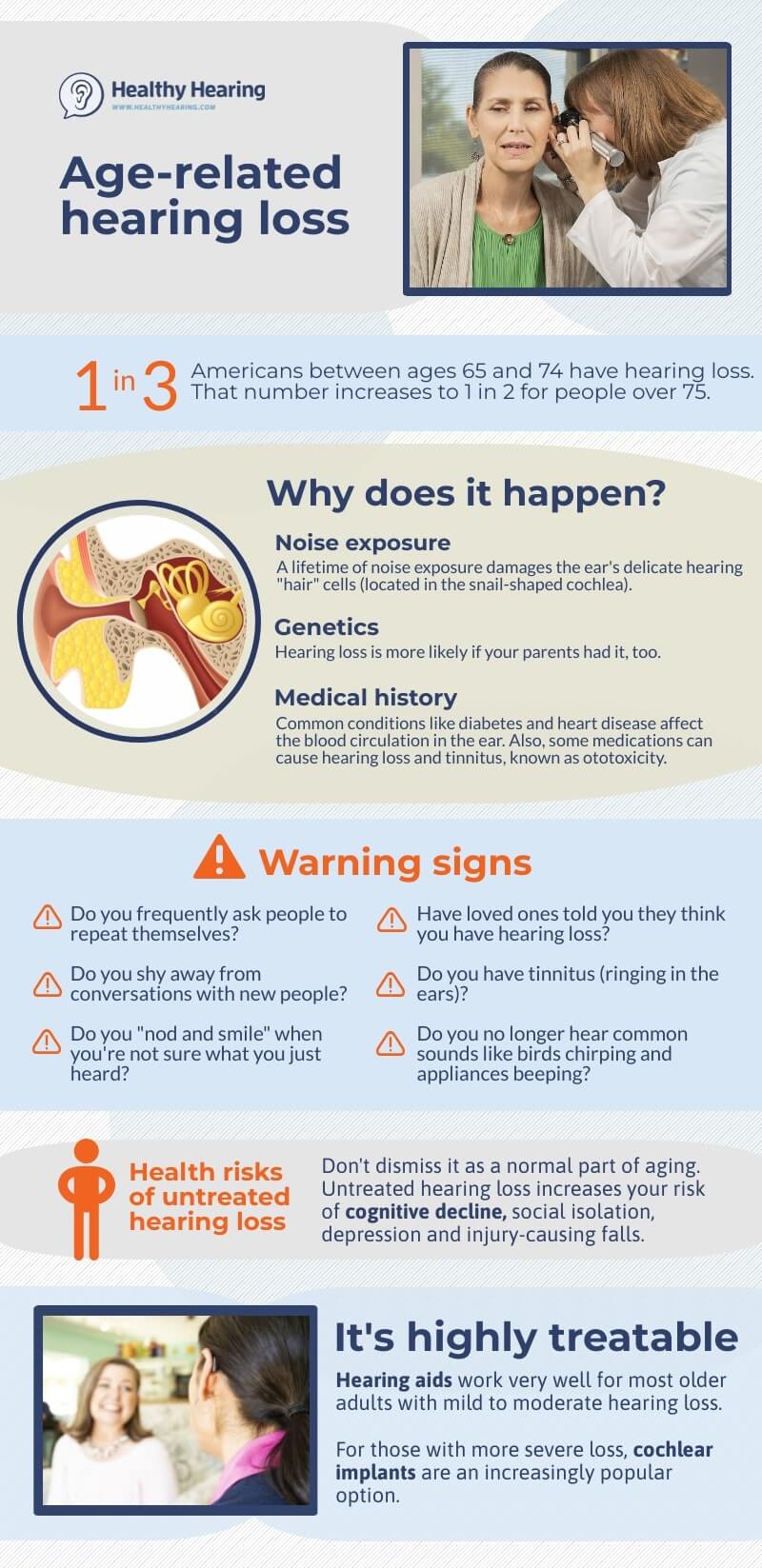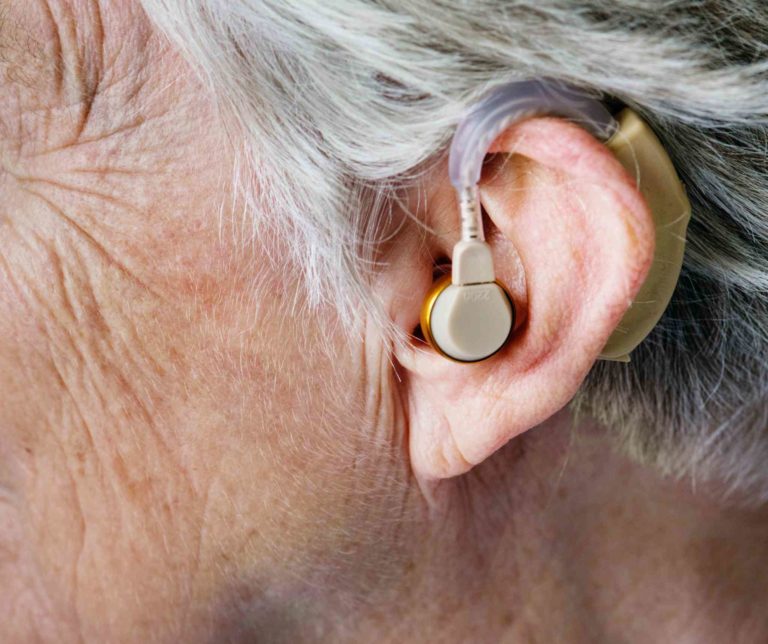

Understanding the signs of age-related hearing decline is essential for maintaining good auditory health as we age. Age-related hearing loss, often known as presbycusis, is a gradual process that affects many seniors. It’s characterized by a gradual loss of the ability to hear certain sounds, especially high-pitched tones. This process, while often gradual, can significantly impact quality of life, making communication and social interactions more challenging. This article will delve into the common symptoms and provide practical insights into early detection and management of hearing decline. We’ll explore actionable steps, highlight the importance of timely intervention, and outline how to effectively maintain auditory health throughout life. We will cover topics such as the early signs of hearing loss, different types of age-related hearing loss, common causes and risk factors, and ways to improve or maintain auditory health.
Identifying the Early Signs of Hearing Loss
Gradual Hearing Decline
Age-related hearing loss, often called presbycusis, typically manifests as a gradual, rather than sudden, decline in hearing. Initially, you might notice difficulty hearing high-pitched sounds like consonants in conversations or the telephone. This gradual progression allows the issue to slip under the radar. Many individuals fail to recognize the onset of the condition.
Difficulty Understanding Conversations in Noisy Environments
One of the key indicators of age-related hearing loss is having trouble understanding conversations in environments with background noise or crowds. People suffering from hearing loss often require the speaker to repeat themselves more often in order to comprehend what is being said. The high-pitched frequencies get lost in the background noise making conversation comprehension more challenging.
Increased Volume on Electronic Devices
If you find yourself constantly turning up the volume on television, radio, or other electronic devices, this might be a sign of hearing impairment. Gradually turning up the sound on electronic devices is a common symptom indicating that an individual’s ears are unable to perceive certain sounds as clearly as they used to.
Related Post : Common Causes of Hearing Loss That Often Go Unnoticed
Missing Sounds or Words
Individuals experiencing age-related hearing decline may find that certain sounds or words are missed entirely, particularly in conversations or noisy areas. In some cases, individuals may completely miss words or sentences while speaking to another individual.
Tinnitus and Ringing in the Ears
Although not always a symptom of age-related hearing loss, tinnitus, or ringing in the ears, can often accompany it. This persistent ringing or buzzing sound can be a disconcerting aspect of hearing decline.
Common Causes and Risk Factors
Exposure to Noise
Extended exposure to loud noises over time is a significant contributor to hearing loss, regardless of age. From loud music to industrial machinery, long-term exposure damages delicate inner ear structures. This is a prevalent issue across multiple demographic groups.
Age
Aging naturally leads to changes in the inner ear that negatively affect the hearing process. This is the most prevalent risk factor.
Medical Conditions
Certain medical conditions can also increase the risk of developing hearing loss, such as high blood pressure, diabetes, or cardiovascular disease.
Family History
Genetics also play a role in hearing loss. A family history of hearing problems can increase an individual’s vulnerability.
Medications
Some medications, particularly some antibiotics, can have negative side effects like inducing hearing loss. Consult with a physician regarding any potential interactions or recommendations.
Strategies to Maintain Hearing Health
Protecting Your Ears
Using earplugs or earmuffs in loud environments is a crucial strategy. This is a simple yet powerful measure for protecting your ears. A simple earplug can reduce noise exposure and protect from long-term damage.
Regular Hearing Checkups
Scheduling regular hearing checkups, particularly as you get older, is fundamental. Early intervention and consistent monitoring help to detect potential issues before they escalate. Audiologists are the best resource for hearing tests and diagnostics.
Managing Underlying Health Conditions
Managing underlying health conditions such as high blood pressure or diabetes can significantly contribute to maintaining overall health, including auditory health. Consistent health management will positively influence your hearing.
Avoiding Exposure to Loud Noise
Minimizing exposure to loud noises, especially for prolonged periods, is essential in minimizing the onset of hearing decline. This is a critical step for mitigating hearing loss. This applies to various situations from industrial environments to concerts.
Maintaining a Healthy Lifestyle
Maintaining a healthy lifestyle, encompassing a balanced diet, regular exercise, and stress management techniques, contribute positively to overall health, including your auditory system. This supports a healthy body overall.
Types of Age-Related Hearing Loss
Sensorineural Hearing Loss
Sensorineural hearing loss is a common type of age-related hearing loss and is often characterized by damage to the inner ear hair cells or the auditory nerve. This is one of the most prominent types of hearing loss and often requires more involved solutions.
Conductive Hearing Loss
Conductive hearing loss happens when sound waves cannot travel from the outer ear to the inner ear effectively. This condition can arise from issues in the outer or middle ear.
Mixed Hearing Loss
Mixed hearing loss is a combination of both sensorineural and conductive hearing loss, making it more complex and requiring a comprehensive approach to treatment.
Prebycusis
Prebycusis is the formal medical term for age-related hearing loss. It’s crucial to differentiate this from other forms of hearing loss.
Hearing Aid Usage
Hearing aids play a crucial role in providing relief and improving communication. Hearing aid use requires adequate training and ongoing support from audiologists to optimize effectiveness.
Seeking Professional Help
Importance of Early Detection
Early detection and intervention are crucial for managing age-related hearing loss. Early detection facilitates early intervention and optimizes treatment outcomes.
Consultation with an Audiologist
Consulting with an audiologist is essential for accurate diagnosis and tailored solutions. An audiologist can assess hearing and develop a personalized treatment plan.
Hearing Tests and Evaluation
Comprehensive hearing tests and evaluations are critical for establishing the baseline and assessing any decline. It’s crucial to maintain consistent monitoring.
Personalized Hearing Solutions
Personalized hearing solutions, such as hearing aids or assistive listening devices, can improve communication and quality of life.
Ongoing Monitoring and Management
Ongoing monitoring and management are vital for optimizing hearing health and preventing further decline. Consistent and appropriate care is needed for optimal results.
In conclusion, understanding the signs of age-related hearing decline is crucial for early intervention and preserving auditory health. By recognizing the subtle changes in your hearing, you can take proactive steps towards maintaining your hearing abilities as you age. Seeking professional audiological evaluation is recommended if you suspect any hearing loss. Schedule an appointment today to protect your precious sense of hearing and enjoy clearer communication for years to come! Visit a hearing clinic for a hearing test and tailored solutions to manage age-related hearing decline.